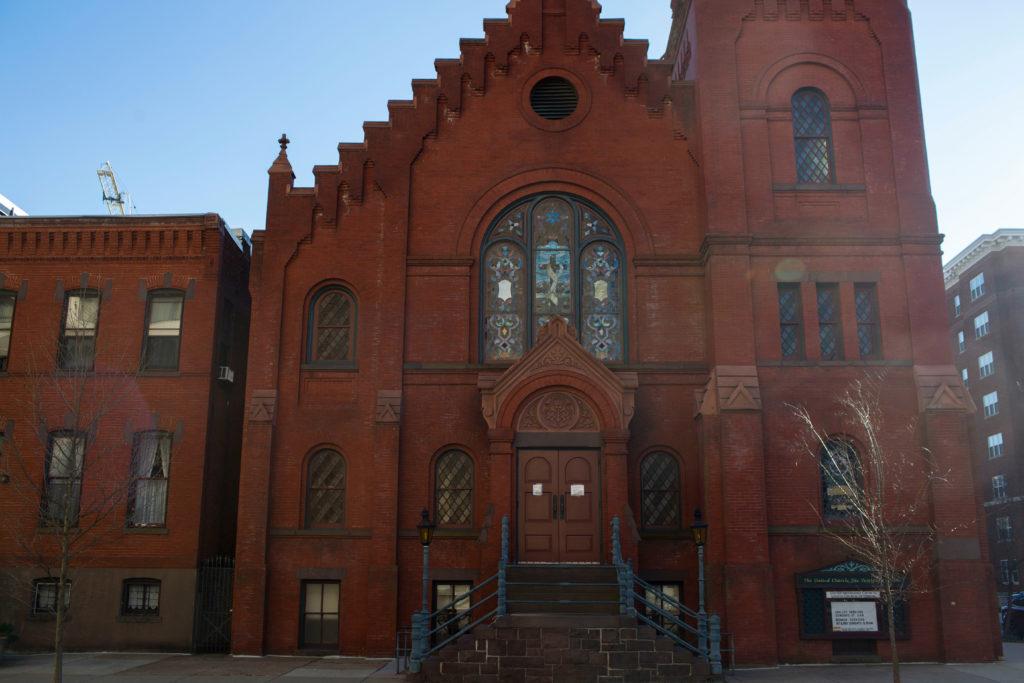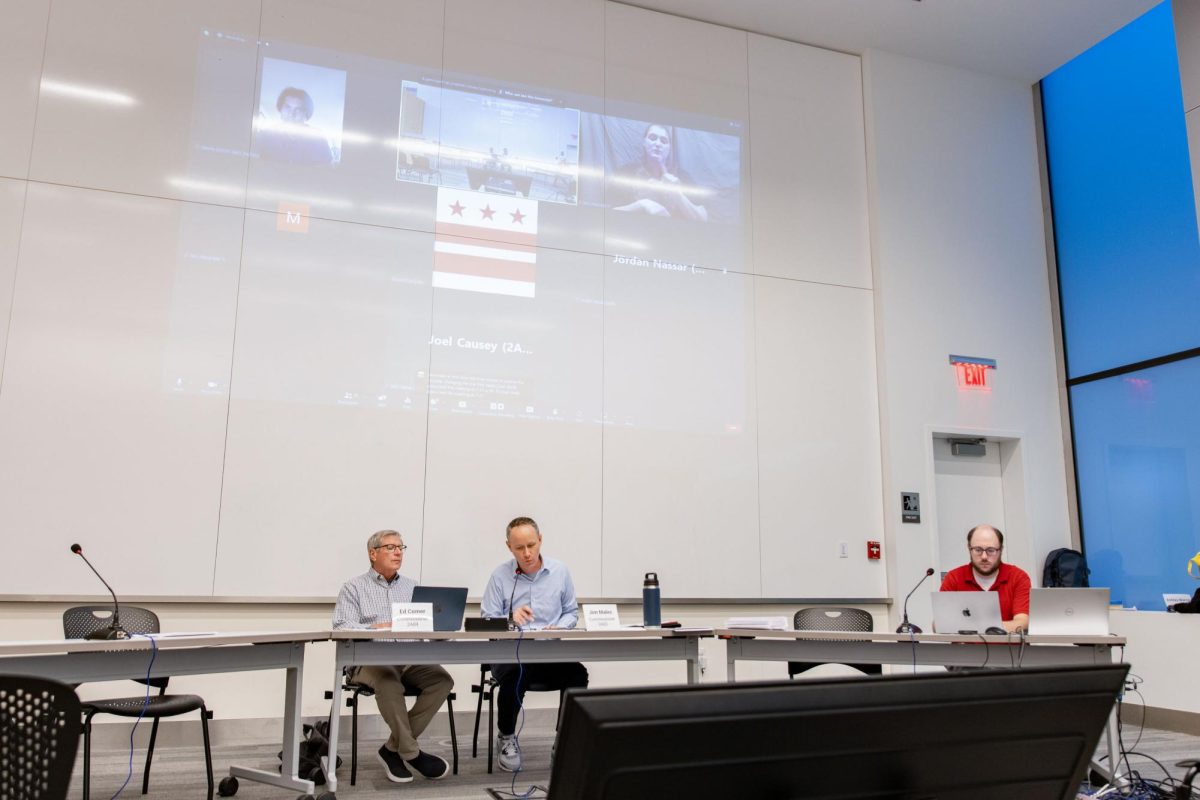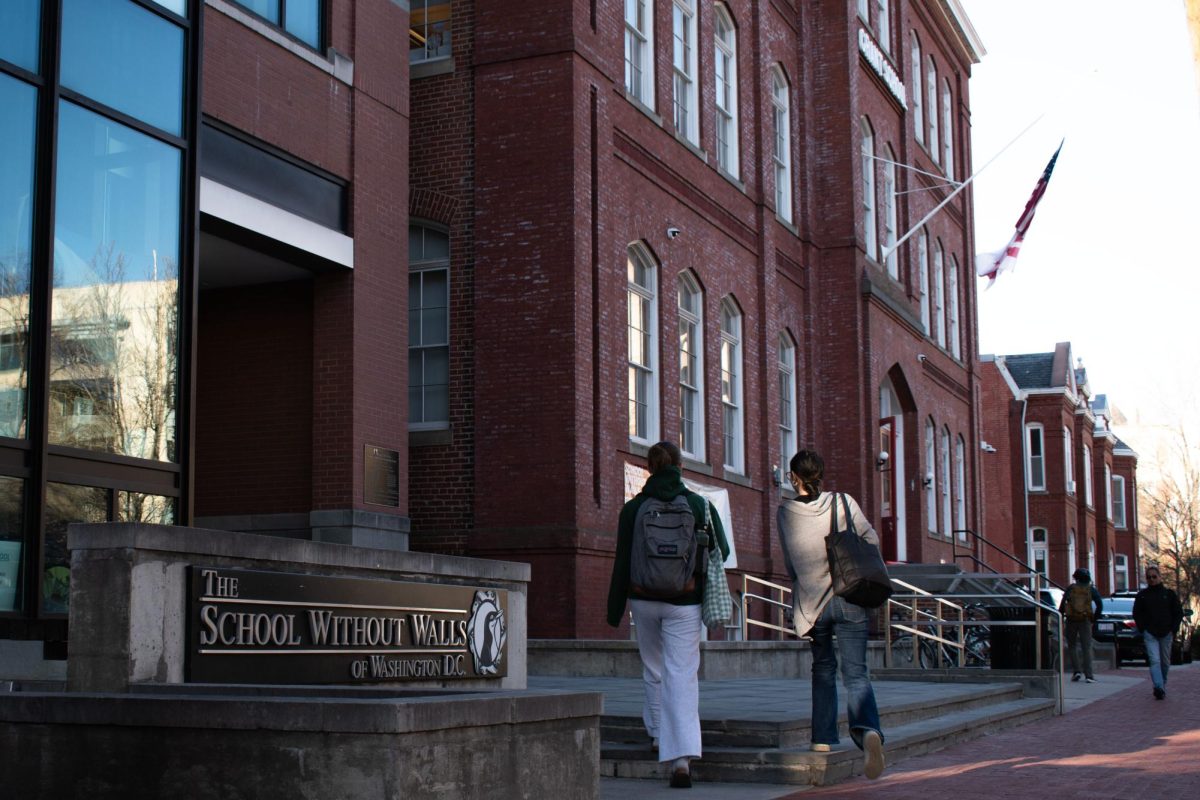A local food pantry is back up and running after shutting down in March during the first wave of the COVID-19 pandemic.
George Madill – a volunteer at the Foggy Bottom Food Pantry, housed in The United Church on G Street – said the pantry first shuttered due to food shortages and renovations before returning last month with “limited food stocks” and a few clients who were aware of the reopening. He said volunteers are working to rebuild the pantry’s operations and clientele, now offering curbside delivery and virtually contacting clients about the service reboot.
“I hope that it keeps people from starving,” Madill said. “People that don’t have money to buy the food or don’t have sources for food, if we can help them out, they come over here, they can pick up food.”
After reopening last month, Madill said volunteers are struggling to account for food shortages and a dropoff in local customers. Aside from the pantry’s listing with Mayor Muriel Bowser’s office and the Capital Area Food Bank, Madill said staff members are messaging clients with contact information and advertising the pantry on Facebook and the church’s website to amplify community awareness.
“The clients haven’t found out that we’re open again, but they’re starting to, and they’re starting to come back, so it will be a while before we get as many clients as we had before the pandemic,” he said.
Madill said the pantry has also been shortchanged on food supplies after the food processors and manufacturers that shut down last year strained the distribution system for local suppliers, like the Capital Area Food Bank. He said volunteers and community members can’t do “that much” to resolve this issue that is influenced by shortages facing the “food supply chain.”
“It’s getting better now, but there was kind of a squeeze on food,” he said. “Everybody’s trying to get the same food, so people were going hungry.”
He said volunteers are now looking to open market vendors like Costco or Giant to offset the supply dropoff, which has left local food banks competing to dole out their remaining supplies to clients amid high demand. He said the pantry accepts “grants and donations from individuals and organizations”, but the number of clients the pantry is able to attract will ultimately determine how well it feeds community members in the area.
“We’re competing with each other,” Madill said. “The food banks are competing with the commercial grocers, competing with the government even, for food to supply to people.”
Madill said the pantry will remain open on its pre-pandemic schedule on the second and fourth Saturday of each month from 10 a.m. to noon.
Kevin Rost, the church administrator at The United Church, said the pantry’s clientele dropped from about 125 to 300 families before the pandemic to now just between 25 to 50. He said the pantry sets income and family size eligibility requirements for clients.
Rost said community members now receive food products at the pantry in a box instead of walking through the pantry and picking items off the shelves, like they typically would before the COVID-19 outbreak. Many clients are currently unaware of the pantry’s reopening, he added.
“The word has not gotten mailed that we’re reopened,” he said. “The clientele are not necessarily connected electronically, not like you have an email list and can email and say, ‘Hey, we’re open again.’”
Rost said he hopes to continue benefiting the local community before hopefully returning to indoor food distribution in the future.
“The hopes and goals are that we can get to serve the people who need to be served and eventually that we can return to inside service so that it’s a much more personable experience,” he said.
John George, the president of the Foggy Bottom Association, said the pantry has a decades-long history of helping struggling community members, like furloughed federal employees and laid-off workers, in need of extra supplies. He said the pantry is “critically necessary” during the pandemic as a center where volunteers help connect those community members with food.
“The Foggy Bottom Food Pantry is a critical and important resource in Foggy Bottom and the West End and for the city,” he said. “It brings the only necessary food supplies to those in need but also is a centerpiece for others in the area to contribute their talents and service for the organization.”
George said he plans to raise donations, promote the pantry around the neighborhood and discuss its services at the FBA’s upcoming meeting Tuesday to increase local awareness. He said students could also volunteer and aid the struggling food pantry.
The United Church’s website states people can volunteer on Saturdays or during the middle of the week and can contact the church office for more information.
“It’s about awareness,” George said. “It’s about communicating that people are in need and that organizations that serve are needing assistance.”







